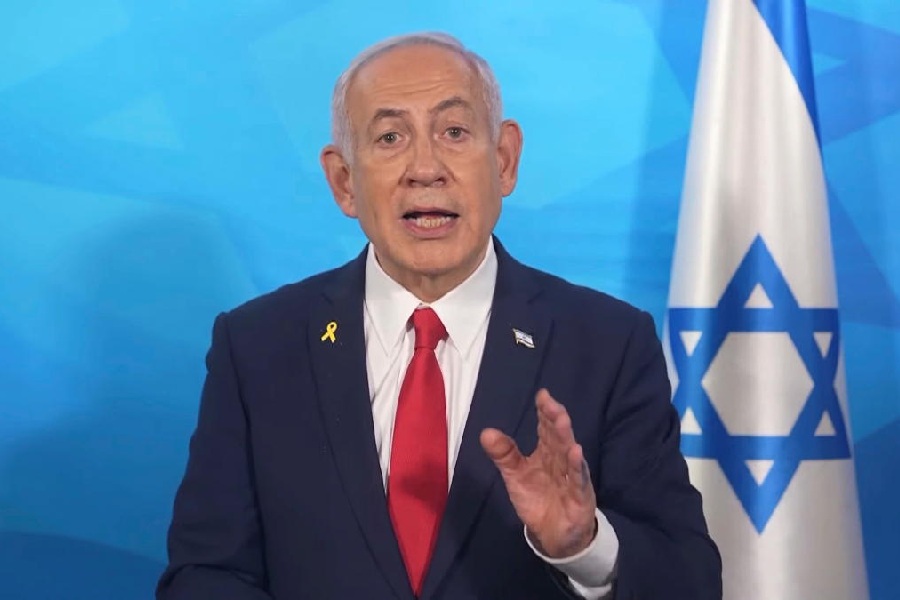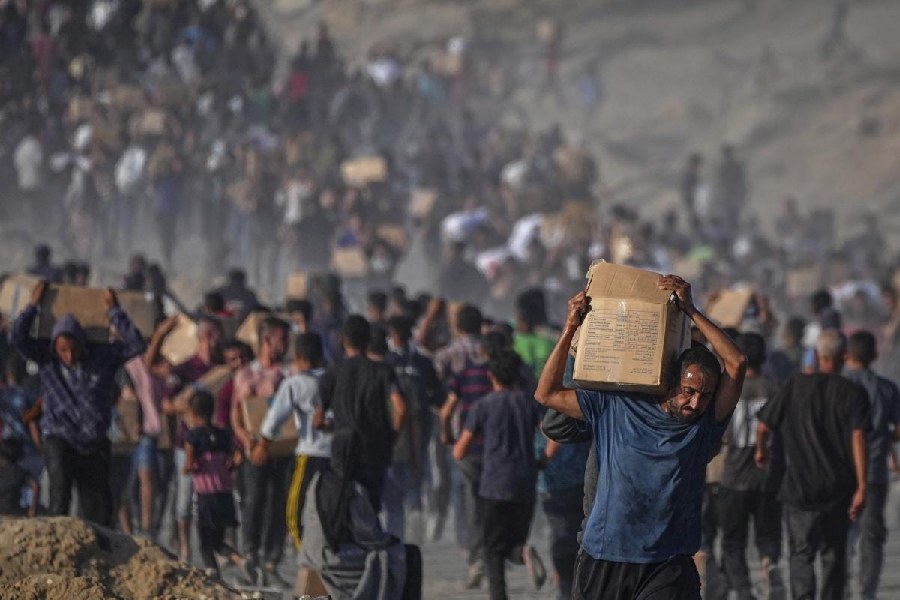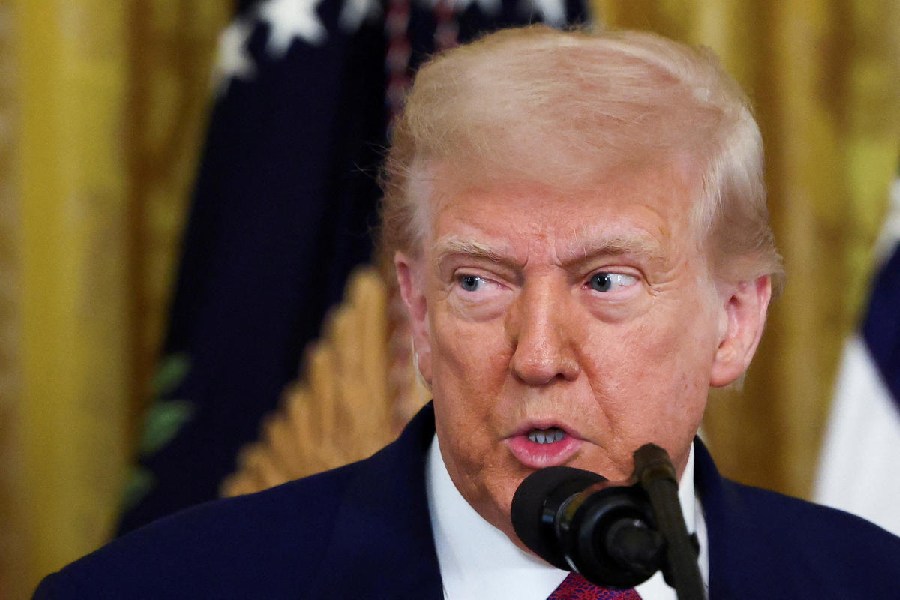After months of political turmoil, war and plummeting popularity, Israel's powerful strike on Iran is likely to reframe Prime Minister Benjamin Netanyahu's legacy, allies and analysts say.
During a 12-day air assault ordered by Netanyahu, Israel bombed nuclear sites deep inside Iran, eliminated many of its arch foe's top military commanders and scientists, and targeted multiple missile facilities across the country.
Both nations agreed to a ceasefire on Tuesday, and although they accused each other of violating the deal in the hours after it was announced, Netanyahu was swift to claim total victory.
"The State of Israel has accomplished great historic achievements and positioned itself side-by-side with the world's superpowers," the government said.
The jubilant tone was a far cry from October 7, 2023, when a surprise attack by Hamas militants out of Gaza handed Israel the deadliest security failure in its history, dealing a devastating blow to Netanyahu's carefully crafted reputation as the nation's guardian and triggering a collapse in his public support.
Netanyahu's recent rhetoric has "completely erased October 7th. He's just talking about Iran," said Dr. Gayil Talshir, a political scientist at Hebrew University.
However, the war against Hamas in Gaza is still grinding on, a constant reminder of the 2023 blunders, and pressure is likely to build quickly on Netanyahu to reach a deal that will end the fighting and secure the release of all remaining hostages.
"A comprehensive agreement to return all the hostages is the call of the moment," said Einav Zangauker, whose son Matan is among the 20 hostages in Gaza still believed to be alive.
"The annals of history are being written now, one chapter is still missing, the chapter of October 7. Netanyahu, it's up to you," she wrote on X.
Redrawing the Middle-East
Despite the cloud of Gaza, the political benefits of the Iranian mission are already being felt.
A survey released last week said 83% of Jewish Israelis supported the assault on Iran and pollsters said they expected Netanyahu's Likud party, which had long been predicted to lose power in any national election, would now gain ground.
"I think there'll be less of a movement to punish him for October 7," said Mitchell Barak, an Israeli pollster who worked for Netanyahu in the 1990s. "He's definitely in a strong position."
The Iranian operation marks a dramatic change in Israel's regional position, which has been evolving at dizzying speed over the past 20 months.
During that time, Israeli forces have severely weakened its enemy Hezbollah in Lebanon, inflicted heavy losses on Hamas in Gaza, decimated air defences in Syria, and now struck directly at Iran – once considered too risky a move.
Netanyahu also managed to convince U.S. President Donald Trump to join the attack and hit Iranian nuclear sites with bunker-busting bombs that only the U.S. airforce possesses -- a coup for the Israeli leader who had previously spent years fruitlessly trying to persuade Washington to strike Iran.
Trump gave the conflict added significance on Tuesday by calling it "The 12-day War" -- recalling the Six Day War of 1967, when Israel launched a preemptive strike on neighbouring Arab states and captured the Sinai Peninsula, Gaza Strip, West Bank, East Jerusalem, and Golan Heights.
Some of Netanyahu's allies have been pushing a new narrative to recast the October 7 attack not as a failure, but as a necessary wake-up call, which finally jolted the nation into confronting its regional foes head-on, rather than contain them.
"October 7 saved the Israeli people," Aryeh Deri, a partner in the right-wing ruling coalition, told Channel 14 TV station.
Political reckoning
Netanyahu will now face pressure to negotiate an end to the Gaza conflict, which has so far killed 56,000 Palestinians, according to local health authorities, most of them civilians.
Opponents have accused him of prolonging the fighting to avoid a political reckoning over who was to blame for the conflict. Procrastination is no longer acceptable, they say.
"Now Gaza," opposition leader Yair Lapid wrote on X on Tuesday. "It is the moment to close there as well. To bring back the captives, to end the war. Israel needs to start rebuilding."
Israel has become increasingly isolated over its actions in Gaza, where it cut off aid for weeks, shrugging off warnings of famine, and reduced much of the enclave to rubble.
Trump himself in recent weeks has called on Israel to wrap up the fighting, having promised during his election campaign last year to bring peace to the region.
However, inside Netanyahu's government, there appeared little willingness on Tuesday to compromise or negotiate.
"Now with all our strength to Gaza, to complete the work, to destroy Hamas and return our hostages," Finance Minister Bezalel Smotrich, a far-right coalition partner, wrote on X.
Smotrich and other cabinet hardliners are pushing for a long-term military occupation of Gaza, including the re-establishment of Jewish settlements -- something Palestinians and Western nations would fiercely oppose.
Talshir described the coming talks over a ceasefire deal in Gaza as a competition between Smotrich and Donald Trump "over who has more leverage on Netanyahu," she said.
Some analysts say Netanyahu might try to capitalize on the Iran operation by calling elections a year early, though pollster Barak said expanding his coalition's slim parliamentary majority made more sense.
"Whenever you go to elections, it sounds great, (but) you go for a roll of the dice," he said.












